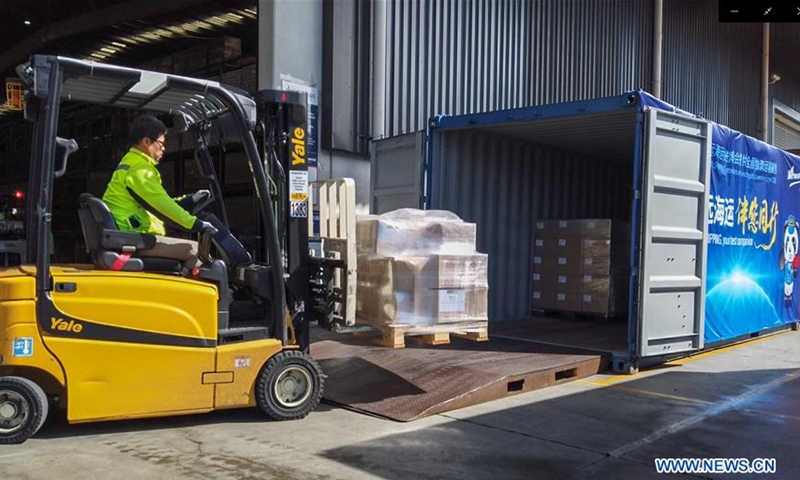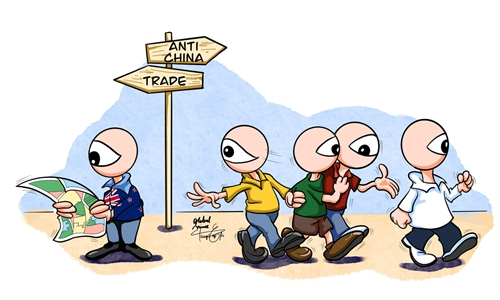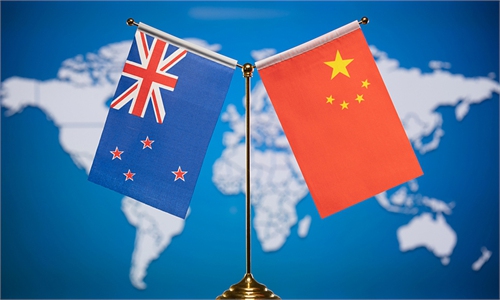
A worker forklifts New Zealand products into a container to be shipped to China for the third China International Import Expo 2020 (CIIE), in Auckland, New Zealand, Sept. 18, 2020. (Xinhua)
New Zealand's independent China stance appears to be under increasing pressure these days, as reflected by the Pacific island nation's sudden warning of a possible cooling of ties with Beijing.
In an interview with the Guardian published on Monday, New Zealand Foreign Minister Nanaia Mahuta likened the trade tension between the neighboring Australia and China to a storm, saying that "it may only be a matter of time before the storm gets closer to us." As such, the minster believed that exporters need to diversify and get prepared for any big change in bilateral ties with China.
Mahuta's comments come just weeks after media reports said New Zealand Prime Minister Jacinda Ardern would look to lead a delegation to major trading partners including China. From seeking to strengthen economic and trade relationship with China to pursuing a reduction in trade dependency, New Zealand's trade attitude toward China is apparently undergoing increasing geopolitical pressure.
While Mahuta indicated the "storm" could easily engulf New Zealand, the stark contrast in business atmosphere that New Zealand and Australia have been facing in the Chinese market over the past months is sufficient to show that such a "storm" can be avoided if the Pacific island nation is willing to. So far, trade disputes between China and Australia have not affected New Zealand's exporters, and in some cases prevailing conditions have allowed their businesses to fill the market void left by Australian goods. Compared with Australia's attitude toward China, it is New Zealand's pragmatic approach has benefitted its economy.
For years, China-New Zealand relations have made significant progress on the basis of mutual respect and mutual benefit. Bilateral trade between the two countries jumped from $4.4 billion in 2008 to $18.1 billion in 2020. In January this year, the two trading partners signed an upgrade to their existing free trade agreement in a sign of expanding economic cooperation in the coming years.
At a time when bilateral trade ties are supposed to foster stronger relations between nations, there is no denying that geopolitical struggles are bringing headwinds to China-New Zealand relationship as the New Zealand government has been criticized by its Western allies for being "soft" toward China. For some time in the future, such pressure may continue to affect New Zealand, blocking it from maintaining normal ties with China.
Fundamentally speaking, whether the bilateral ties will deteriorate or not will largely depend on New Zealand's choice based on its own interests. We hope that its government is able to block out external interference to avoid being coerced by geopolitical pressure and to enhance the mutually beneficial bilateral cooperation with China to a new level.



